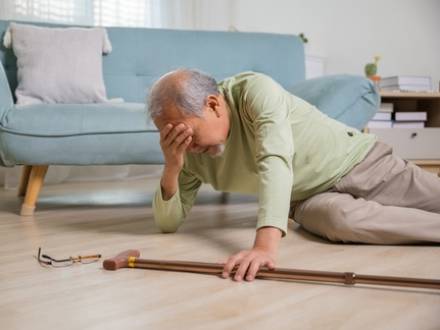Defending a Nursing Home Fall Case | Illinois
 It can be understandably upsetting for family members of a nursing home resident to find out that their loved one has fallen. However, few people other than those who have experience working in skilled nursing facilities have an accurate understanding of the measures preventing 100 percent of falls would involve - and why some of those steps would be outright illegal.
It can be understandably upsetting for family members of a nursing home resident to find out that their loved one has fallen. However, few people other than those who have experience working in skilled nursing facilities have an accurate understanding of the measures preventing 100 percent of falls would involve - and why some of those steps would be outright illegal.
Nursing home residents have what is commonly referred to as the "right to fall." What this actually means is that nursing home staff generally cannot restrain a resident to such a degree that he or she would never have an opportunity to fall. If you or your skilled nursing facility is being sued because a resident fell, an experienced DuPage County litigation defense attorney can help.
What The "Right to Fall" Means
Nursing home residents have certain rights under Illinois law. While the "right to fall," is, of course, not an actual legal right, what residents do have is the right to be free from constant restraint and the right to refuse assistance when getting up from bed. Elderly people who are disoriented may forget that they need help to walk or use a wheelchair, but this does not mean that staff can physically restrain them to their beds at all times. The use of restraints in nursing homes is tightly restricted. Nursing home staff also cannot always physically grab a resident who is insisting on walking unaided despite being a fall risk.
Falls Are Sometimes Behavioral
In dementia patients, falls may be deliberate and behavioral. Elderly adults with certain behavioral health conditions may intentionally drop to the floor, generally as a means of seeking attention. Some residents may even do this habitually. Patients who are prone to wandering are also more likely to fall due to a lack of situational awareness.
Staff Cannot Supervise All Residents at All Times
Nursing homes are facing a staffing shortage and are often operating at the legal minimum ratios. This means that no matter how much they would like to be, staff members cannot have eyes on all patients at all times. Residents cannot be directly supervised around the clock, and one-on-one sitters must be reserved for cases where they are absolutely necessary due to a severe risk of harm to an individual patient. Sitters cannot be available for every resident who is a fall risk and nursing homes may not be liable simply because they did not constantly supervise a resident who fell.
Contact a Lisle, IL Nursing Home Litigation Defense Lawyer
SpyratosDavis LLC is committed to providing the best defense possible to skilled nursing facilities that are being sued due to a fall injury. Our experienced DuPage County, IL medical litigation defense attorneys focus on creating smart and successful strategies for each case we take on. Contact us at 630-810-8881 for a confidential consultation.










